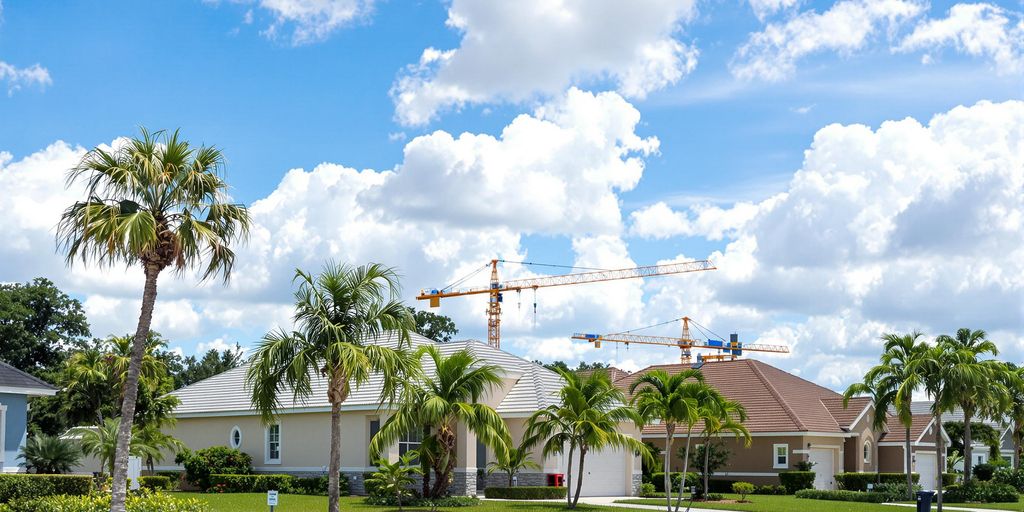Florida’s real estate landscape is undergoing significant changes with new laws impacting property owners and the affordable housing crisis. The Live Local Act, designed to spur affordable housing development, offers tax incentives and zoning flexibility, though it faces criticism for potentially overriding local control. Concurrently, reforms to condo safety legislation aim to ease financial burdens on condo owners while maintaining necessary building inspections.
Florida’s Live Local Act: A Double-Edged Sword for Affordable Housing
Florida’s Live Local Act, enacted in 2023 and refined through 2025, seeks to address the state’s housing affordability crisis. It provides developers with substantial incentives, including property tax exemptions and relaxed zoning regulations, to encourage the creation of affordable rental units. However, its implementation has been met with mixed reactions.
- Tax Incentives: Developers can receive a 75% property tax exemption for rental housing targeting middle-income families (80%-120% of area median income) and a 100% exemption for units serving families below 80% of the area median income. To qualify for the 75% exemption, developments must have over 70 affordable units.
- Zoning Flexibility: The act allows for more flexible zoning rules, including building height, site use, and density standards, for affordable housing projects in commercial, industrial, and mixed-use areas. Projects must set aside at least 40% of rental units for affordable housing for a minimum of 30 years.
- Funding and Public Land: The act ensures full funding for state housing programs like SAIL and SHIP through the Sadowski Trust Fund and mandates that counties and cities identify publicly owned land suitable for affordable housing.
Despite its intentions, critics argue the act has loopholes that developers exploit, and it can infringe on local authority. Several counties and cities have opted out of the "missing middle" property tax exemption, citing concerns that it benefits luxury apartments more than truly affordable housing. Legal challenges have also emerged, with developers suing municipalities over height restrictions.
Condo Reform Bill: Balancing Safety and Affordability
In the wake of the 2021 Surfside condo collapse, Florida implemented stricter building safety legislation, requiring regular inspections and reserve funds for condo associations. While well-intentioned, these measures led to significant cost increases for condo owners, prompting a new reform bill (HB 913).
- Key Changes: The new bill, awaiting the Governor’s signature, aims to provide financial flexibility without compromising safety. It allows condo associations to temporarily pause reserve fund contributions for up to two years and permits alternative funding methods like loans or lines of credit.
- Impact on Owners: The reform offers
Sources
- Live Local Act: Questions and answers, The Palm Beach Post.
- What Condo Reform Bill Means for Florida, Newsweek.
- New Florida laws will impact property owners: Here’s what to know, FOX 13 Tampa Bay.
- Early results of Florida’s Live Local Act mixed for affordable housing, The Palm Beach Post.
- Major update for Florida condo owners in midst of crisis, Daily Mail.


